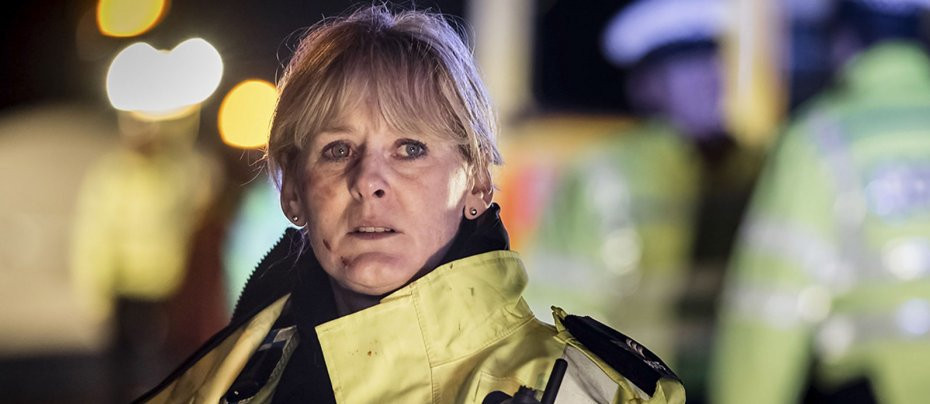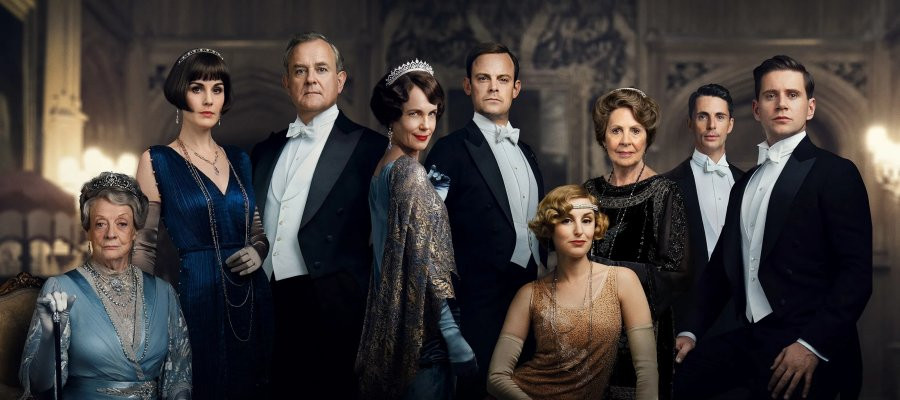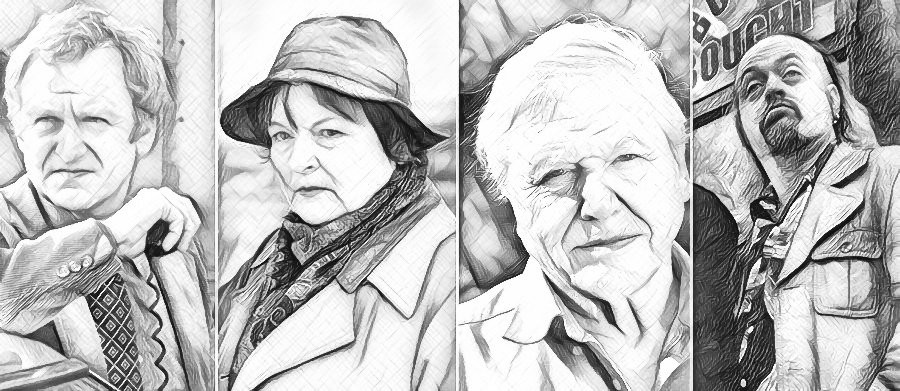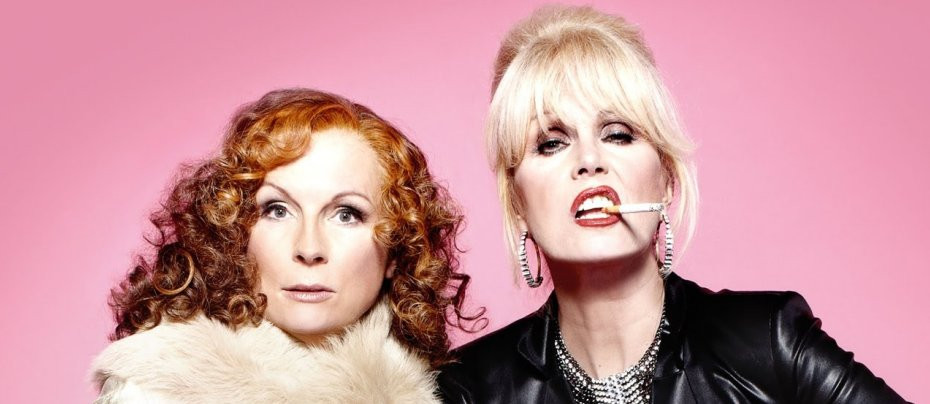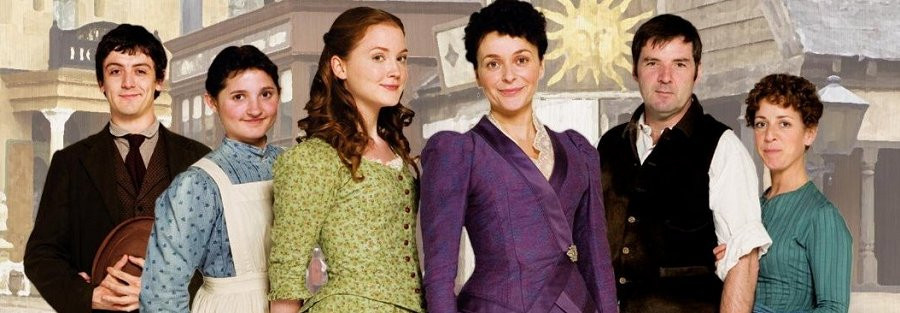
Lark Rise to Candleford
2008 - United KingdomThe BBC obviously loves its Sunday night baby, Lark Rise to Candleford, judging from the care and money lavished on it. The production values are high, it’s beautifully filmed, and it has a splendid cast, including an impeccable Julia Sawalha and the versatile Mark Heap. It would be easy to dismiss the programme as 'cosy', but somehow it finely negotiates its position to avoid being sickly sweet, even though the human values it champions might seem a little old-fashioned in today’s effing and blinding television culture. Somehow it shines, though it seems to be about nothing very much at all.
Lark Rise is a small village; Candleford, the relatively smart, sophisticated market town some seven or eight miles distant, houses the Post Office where Laura Timmins, who narrates the prologue and epilogue to each episode, goes to work with cousin Dorcas. It also boasts an hotel, and a smart dress and fabric shop run by two idiosyncratic spinster sisters who dress identically. Lark Rise represents the old, enduring values while Candleford is to some degree the place of progress where new ideas seed themselves. The two complement one another, and Laura's journey from one to the other represents this change.
Based on the autobiographical novels of Flora Thompson, the first published in 1939, Lark Rise’s strengths lie prominently in the calibre of its cast. Although the narrator, an older Laura played unseen by Sarah Lancashire, is the fount of the memories that make up each episode (like that other Laura of Little House on the Prairie), the pivot of the show is really Dorcas Lane, Candleford’s Postmistress, played with exquisite sensitivity by Julia Sawalha. She manages to embody a personality which is fundamentally kind and just, but is coupled with a lack of self-awareness and opinionation that at times lead her to tread hard on tender toes. Dorcas frequently expresses herself self-righteously and tactlessly, but once she realises her mistakes she is big enough to admit her follies, make amends where she can, and apologise. Ms Sawalha conveys Dorcas' many emotions by tiny movements of her face - a twitch of the lips or cheek, a slight flick of the eyelids, a certain look in the eye - sometimes better than through the dialogue, and it’s a joy to watch.

The rest of the cast is strongly written, and the characters all have their stories and incidents and dreams. There’s no great theme, except perhaps an examination of the foibles and complexities of everyday people, which remain fundamentally the same no matter what the era. There are feuds between families and villages, misunderstandings and mischief, misplaced love and enduring love, jealousies and kindnesses – all the stuff of real life and fiction, set in a still-bucolic, slightly idealistic past, but one which is in the throes of social change. The time is the late 19th century, the bicycle is a strange innovation and local journeys (and postal deliveries) are still made largely on foot. There's pride in craftmanship and hard work; family values are important. A kindly hand, though, is always offered in the end to those who can’t quite cut the mustard, such as old Twister, who's a bit too fond of a drink and has an eye to the main chance, as long as it doesn’t involve too much hard work, and the hapless Caroline Arless, played with gusto by Dawn French, struggling alone with pregnancy and an unruly brood (her husband is usually away at sea), who does her chaotic best but is always in trouble, usually fortified by liquor. The Post Office itself is a paragon of upright business practice with a reputation for rectitude that is fiercely protected by its employees: Dorcas herself, young Laura Timmins (Olivia Hallinan) and god-fearing Thomas Brown (Mark Heap).
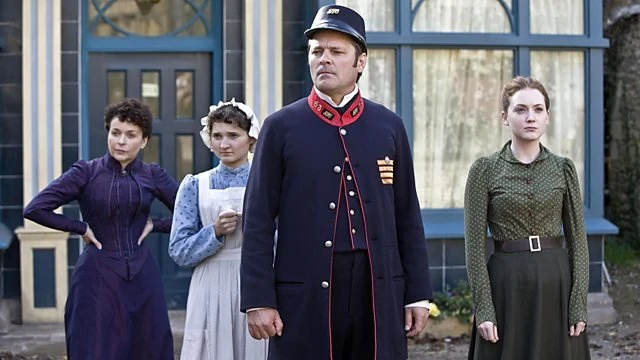
One can’t help thinking that the 'feminist' line sometimes taken by Laura's mother and other women owes a bit more to today's mores than to those of the period, and that the way Laura's stonemason father, of (for the times) radical left-wing persuasion, speaks to those of an elevated class would lead him into more trouble than the programme admits, but the willing suspension of disbelief never hurt anybody when the quality of a series is so high.
Each episode begins and ends with a monologue musing on human life by grown-up Laura (not entirely unlike Desperate Housewives, but rather more wholesome), and if the television series departs from the actual canon of the author, it nonetheless captures the spirit of the books and of the time, and is a quiet oasis of TV pleasure in a shouting TV world.
Update: Since this review was written it was announced (on 22 January 2011) that the show would not be returning for a fifth series, despite impressive ratings.
Seen this show? How do you rate it?
Seen this show? How do you rate it?
Published on December 29th, 2018. Written by Pippa Gwilliam (March 2009) for Television Heaven.



